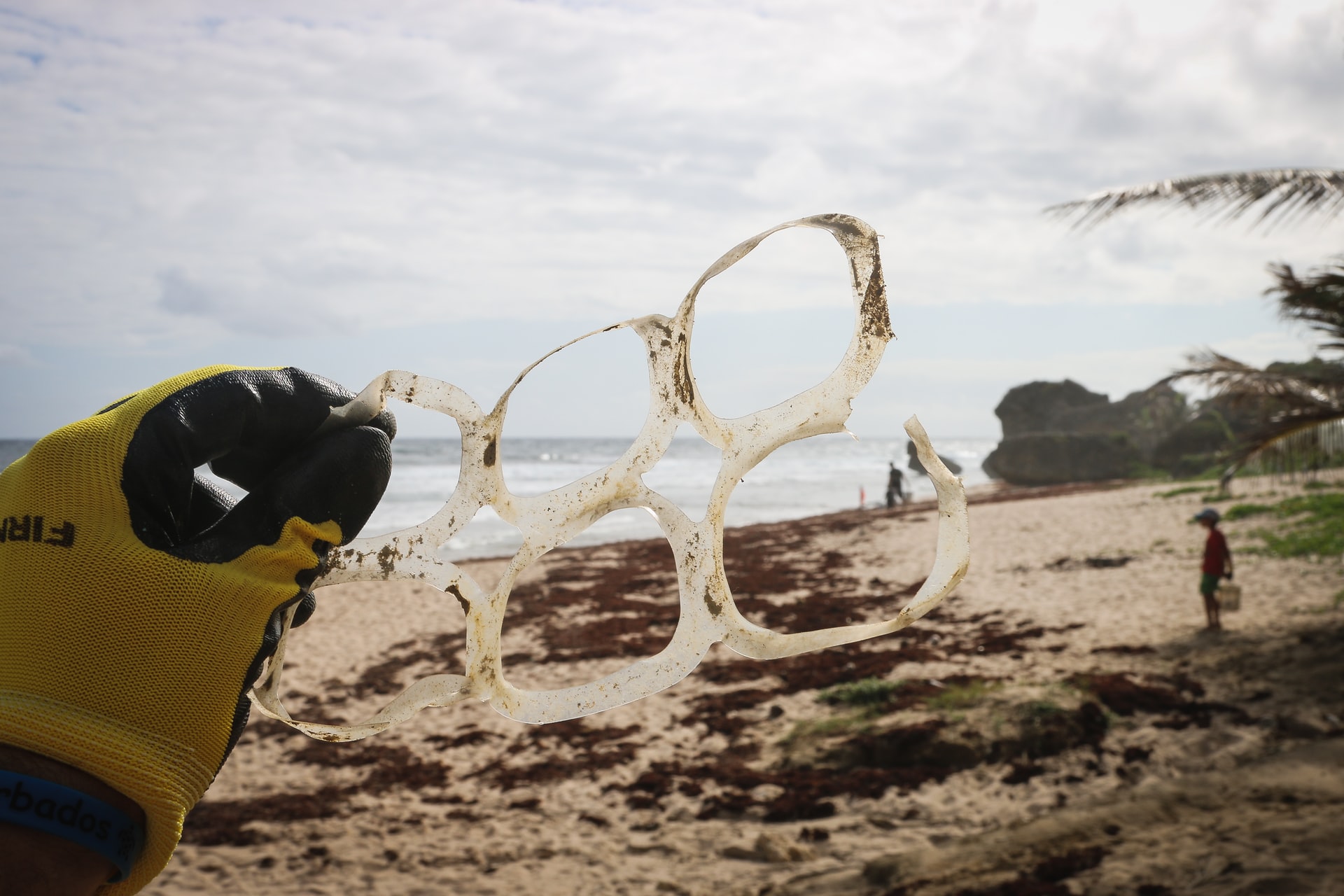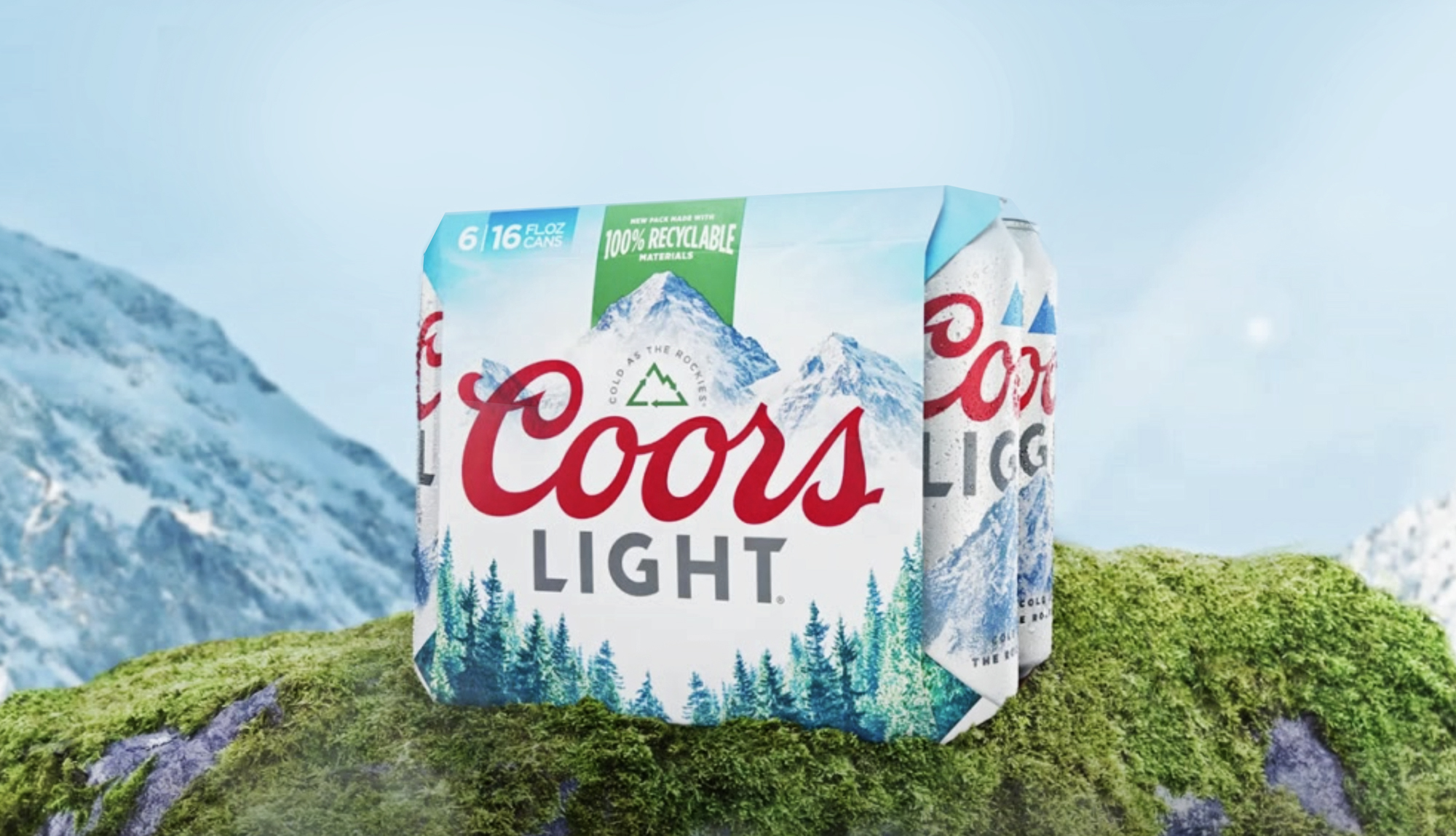
- Sustainable Planet -
- 4mins -
- 46 views
Big beer brand to phase out plastic rings for eco-friendly packaging
Coors Light will become the largest US beer brand to scrap the infamous plastic rings in favour of a recyclable, sustainable cardboard alternative.
Coors Light is phasing out problematic plastic six-pack rings
US beer brand Coors Light is ditching the plastic rings on its six-packs and replacing them with an environmentally friendlier option. Beginning later this year, Coors Light will instead be packaged in cardboard wrap carriers that are recyclable and sustainably sourced.

Coors Light is making an effort to lighten the load it places on the environment
Coors Light parent-company Molson Coors announced Tuesday 1 March that six-packs of its Coors Light brand would no longer come in the infamous plastic rings that trap marine life, CNN reported. Instead, starting later this year, the beer will come in a recyclable, sustainable cardboard alternative. Coors said it was the largest U.S. beer brand to make the change.
“We’re chill about a lot of things, but single-use plastic isn’t one of them,” Coors Light tweeted Tuesday 1 March. “So we’re eliminating plastic rings from our packaging, starting this year and finishing by 2025.”
The plastic-ring phase out is part of a larger sustainability push at Molson Coors, which has promised to complete a series of environmental goals by 2025. These include:
- Ensuring all packaging is 100% reusable, recyclable or compostable and all plastic packaging is made from 30% recycled content.
- Growing Coors barley in 10% less water.
- Brewing beer in 22% less water.
- Restoring 3.5 billion gallons (16 billion litres) of water to watersheds
- Reducing greenhouse gas emissions by half in direct operations and by 20% across the company’s supply chain.
The plastic-ring replacement is being funded by an almost $85 million capital investment. It will apply to all of the approximately 30 brands that Molton Coors distributes in North America, CNN reported, including Blue Moon and Miller Light.
“We believe that buying beer shouldn’t mean buying plastic,” Marcelo Pascoa, vice president of marketing for the Coors family of brands, told Food & Wine. “That’s why we’re taking a step toward making packaging even more sustainable, and with this achievement Coors Light will save 400,000 pounds of single-use plastic from becoming waste every year.”
Source: EcoWatch

around 18 billion pounds of plastic enter the world’s oceans every year, harming nearly 700 species
The plastic rings used for soda and beer six packs have been controversial long before the current concern over ocean plastic pollution. The Associated Press reported in 1987 that plastic-ring entanglements killed up to one million seabirds and 100,000 marine mammals every year, though the source of this statistic is unknown, according to National Geographic.
Still, the threat of entanglement led the U.S. Environmental Protection Agency (EPA) to mandate that all plastic rings be degradable by 1994. But marine life is still in danger before the rings degrade, and the rings can still break down into smaller pieces that animals could eat by mistake.
Since the 1980s, worry about plastic pollution overall has mounted. Today, around 18 billion pounds of plastic enter the world’s oceans every year, harming nearly 700 species.
Molson Coors CEO Gavin Hattersley told CNN that the company’s decision reflects how important sustainability now is to its consumers.
“Our consumers like the thought of products they consume being environmentally friendly,” Hattersley said. “The amount of plastic recycled is very, very low.”
Coors is not the first major beer maker to jettison plastic rings. Danish brewery Carlsberg and Corona both implemented or trialed alternatives in 2018. The U.S. lags behind the rest of the world, however. In the UK, Guinness, Coors and Budweiser have all already switched to paper, according to Food & Wine.
Coors is now bringing the change across the pond, where it has the potential to make an important difference. Coors Light is the second best-selling U.S. beer brand after Bud Light. However, Budweiser Brewing Group still sells its U.S. brands in plastic, according to CNN.
Source: EcoWatch


